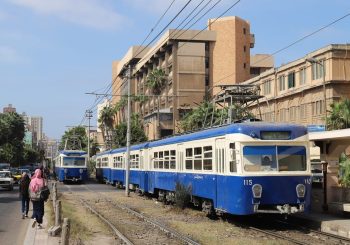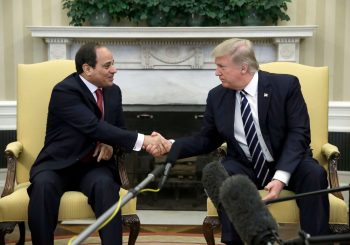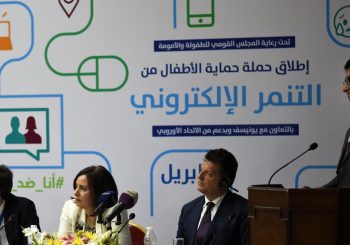Egyptian prime minister Mostafa Madbouly met with Ukrainian president Volodymyr Zelenskyy in Kyiv on 16 June, as part of a delegation of African leaders exploring possible peace initiatives in the Russia-Ukraine War. The following day, the delegation visited Russian president Vladimir Putin in St. Petersburg to discuss the same issue.
The peace mission aimed to use a decidedly neutral third-party, African nations, to broker peace between Ukraine and Russia. China organized a similar proposal in February, but it was dismissed by Ukraine and its allies.
South African president Cyril Ramaphosa described the campaign as “the first time that Africa is united behind the resolution of a conflict outside our continent, and where you have a group of African heads of state and governments traveling together in an attempt to find a path to peace to this conflict.”
Ramaphosa also said that he will not “take sides in a contest between global powers,” emphasizing the trend of neutrality across Africa and Asia in the Russia-Ukraine War.
Egypt had voted in favor of a UN resolution condemning Russia’s military aggression in Ukraine and demanding its withdrawal from Ukrainian territory in March 2022.
Just over half of the African states, 28 of the 54, voted in favor of the resolution, with most others abstaining from the vote. About 81 percent of non-African countries voted in favor of the resolution.
In Kyiv
Zelenskyy began the meeting with the African delegation by describing Russian attacks in Ukraine that occurred that day.
He then introduced the 10-point “Ukrainian Peace Formula,” which is a plan that seeks to end the war, maintain Ukrainian territorial integrity, and protect other nations that may suffer from Russian aggression. He has introduced that same plan to other global players such as the U.S. and the Arab League.
The delegation, which also included the presidents of the Comoros, Senegal, and Zambia, as well as special envoys from the Republic of the Congo and Uganda, were forced to shelter in bunkers amid surprise air strikes in Kyiv.
Ukrainian foreign minister, Dmytro Kuleba tweeted: “Russian missiles are a message to Africa: Russia wants more war, not peace.”
The delegation also visited Bucha, a Kyiv suburb, where they saw civilian bodies scattered in mass graves. Bucha saw a Russian military withdrawal last year, after Russia abandoned a campaign to seize Kyiv.
Zelenskyy called on the African delegation to ensure that Russian aggression can no longer be carried out.
“I will reiterate: we need real peace, and therefore, a real withdrawal of Russian troops from our entire independent territory,” he said.
In St. Petersburg
The African delegation met with Putin for three hours and discussed their own 10-point peace plan the following day, on 17 June. Details about the delegation’s proposals were kept private, but Kremlin spokesman Dmitry Peskov said that they did not show much promise.
“The peace initiative proposed by African countries is very difficult to implement,” he said. “But, President Putin has shown interest in considering it.”
Russian foreign minister, Sergei Lavrov, also came out of the meeting with lofty claims.
“The main conclusion, in my opinion, from today’s conversation is that our partners from the African Union have shown an understanding of the true causes of the crisis that was created by the West,” he said.
In the talks, Putin also reiterated Russia’s demand for the recognition of the territory it has annexed or occupied, which Ukraine has emphatically refused.
Global Food Crisis
A major topic of discussion, in Kyiv and St. Petersburg, was the impact of the war on grain imports in the African continent. Many African nations, including Egypt, have historically relied on grain imports from both Russia and Ukraine. The outbreak of the war triggered wheat shortages across Africa.
In Kyiv, Zelenskyy presented results of two Ukrainian export initiatives meant to tackle the crisis: The Black Sea Grain Initiative and the Grain from Ukraine program.
“Together with our partners, we are working on grain hubs in Africa. The food supply must be reliably guaranteed, and the right of every person to food must be ensured,” he said. “Despite any efforts of states like Russia to use the threat of hunger and social instability to blackmail people.”
Zelenskyy also said that Ukraine is ready to substantially expand food and educational programs for students, particularly those from Africa, but that there must first be a collective effort to restore the integrity of the United Nations (UN) Charter and end what he called Russian imperialism.
The UN Charter only permits the use of military force in the case of self-defense, or if authorized by the UN Security Council—in which Russia has a veto power..
Earlier this week, Putin said that he would consider giving grain stores free of charge to “the world’s poorest countries,” after stating that Russia may pull out of the Black Sea Grain Initiative, which allowed grain exports from Ukrainian Black Sea ports to continue after the war broke out. Putin claims that the Ukrainian grain exports have only gone to wealthy countries.
“We are not doing this for Ukraine,” he said. “We are doing this for our friendly countries in Africa and Latin America.”
For now, the peace mission has yielded little on ending the war or stabilizing grain exports.
Subscribe to the Egyptian Streets’ weekly newsletter! Catch up on the latest news, arts & culture headlines, exclusive features and more stories that matter, delivered straight to your inbox by clicking here.







Comments (2)
[…] Source link […]
[…] Source link […]